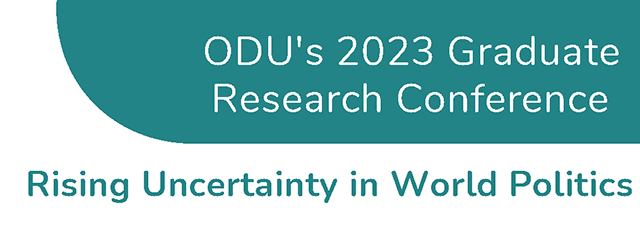The Uncertainty of the Western Cultural and Academic Discourses about the Situation of Arab and Muslim Women
Student Type
Graduate
University
Old Dominion University
Country
United States
Document Type
Conference Paper
Description/Abstract
Taking seriously the situation of Arabs and Muslim women in Western academic, cultural, and online discourses, this paper investigates the venues that impact our understanding of Arabs and Muslim women. In Western contents, Arab and Muslim women are presented mostly as either sad, miserable, poor, sick, or helpless. The idea that Arab and Muslim women are less privileged than other women in different parts of the world is a widely known concept in the West. This presentation of these women as either refugees or wretched people who always need to be rescued is far from neutral. It is not true that all Arab and Muslim women's life is painful. Theoretical groundwork for this paper exists in Edward Said's discussion of Orientalism and the critiques of Western feminism by postcolonial feminists such as Mohanty, Spivak, and Leila Ahmed, all of which resist narratives of replicating and reinforcing racists views about Arab and Muslim women in Western contexts. I take up these concerns in and through my investigation of Middle eastern Research Centers, Western Media, Arab-American Literature, and the Western digital networking. I provoke to question our certain beliefs about decisions based on academic, cultural, and online content and reimagine the certain decisions we form about people in contested social situations as they impact our understanding and limit our knowing of the world. I conclude by gesturing toward a more reasonable probing of Western content about women all over the world to generate collaborative efforts to better understand societies, treat women with dignity, refrain from using women as tools for political and socio-religious implications, not to intensify some women's pain negatively, and not to take whatever posted online for granted.
Keywords
Arab, Feminism, Orientalism, Media, Muslim women, Western context
Disciplines
International and Area Studies
Session Title
Media and Communication within Global Systems
Location
Webb Center, Chesapeake/Portsmouth Room
Start Date
February 2023
End Date
February 2023
The Uncertainty of the Western Cultural and Academic Discourses about the Situation of Arab and Muslim Women
Webb Center, Chesapeake/Portsmouth Room
Taking seriously the situation of Arabs and Muslim women in Western academic, cultural, and online discourses, this paper investigates the venues that impact our understanding of Arabs and Muslim women. In Western contents, Arab and Muslim women are presented mostly as either sad, miserable, poor, sick, or helpless. The idea that Arab and Muslim women are less privileged than other women in different parts of the world is a widely known concept in the West. This presentation of these women as either refugees or wretched people who always need to be rescued is far from neutral. It is not true that all Arab and Muslim women's life is painful. Theoretical groundwork for this paper exists in Edward Said's discussion of Orientalism and the critiques of Western feminism by postcolonial feminists such as Mohanty, Spivak, and Leila Ahmed, all of which resist narratives of replicating and reinforcing racists views about Arab and Muslim women in Western contexts. I take up these concerns in and through my investigation of Middle eastern Research Centers, Western Media, Arab-American Literature, and the Western digital networking. I provoke to question our certain beliefs about decisions based on academic, cultural, and online content and reimagine the certain decisions we form about people in contested social situations as they impact our understanding and limit our knowing of the world. I conclude by gesturing toward a more reasonable probing of Western content about women all over the world to generate collaborative efforts to better understand societies, treat women with dignity, refrain from using women as tools for political and socio-religious implications, not to intensify some women's pain negatively, and not to take whatever posted online for granted.


